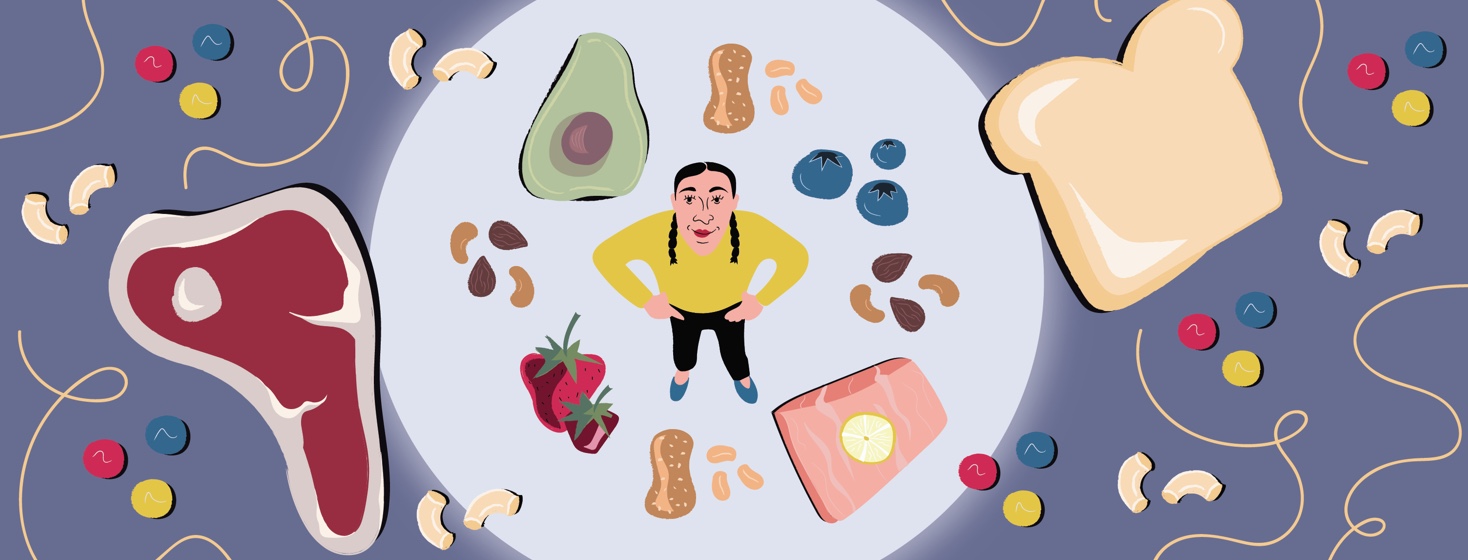My PV Diet
When I was first diagnosed with polycythemia vera (PV) three years ago, one of my first questions was what should I be eating. I have always eaten healthy…well…at least ever since that first year of college and gaining that “freshman 10.” Most of my life, I have made sure my diet contained the four food groups and a good mix of all, just like I learned way back in elementary school.
How does iron affect my polycythemia vera?
PV causes all my blood levels to be elevated which, in turn, causes a multitude of cardiac issues and symptoms like anemia. I learned that iron fuels the creation of red blood cells. Since excess red blood cells was what I was trying to avoid, my logic was I should avoid all foods that were high in this nutrient.
I knew red meat had a lot of iron. Other than a steak every so often, I wasn’t a particularly big red meat eater, so that was easy to eliminate. However, I do get some strange looks when I go to a BBQ place and order a salad. I mean, I live in Texas after all.
I researched what other foods were high in iron, spending hours at the grocery store looking at the nutrition labels (and likely annoying my fellow shoppers) trying to find foods that contained less. It was actually more of a challenge than one would think. Even dark chocolate has it.
About a year after diagnosis, I met with a nutritionist who explained the difference between animal (heme) and plant iron (non-heme). The plant form, she explained, is not as easily absorbed into the system. I learned that Vitamin D combined with iron adversely impacts the absorption of iron (whereas I heard Vitamin C increases the absorption of it). With this newfound knowledge I pondered…so if I have oatmeal with fruit and milk, do they cancel each other out? Clearly, I was overthinking this.
Both my hematologist and PV specialist agreed, emphasizing that food iron consumption really doesn’t make that much of an impact on red blood cell production.
Finding heart-healthy foods
When I was first diagnosed my platelets were very high, so I Googled “foods to lower your platelets.” Pomegranate was top on the list. Raw crushed garlic was also a top contender for platelet-reducing. I tried taking it, but no matter how I disguised it, it was horrible. I decided even if it dropped my counts dramatically, it wasn’t worth it.
Knowing that PV can cause cardiac events like stroke and heart attacks, I scrolled the Internet looking for foods that were heart-healthy. Berries, salmon, nuts, avocados, olive oil, oatmeal and vegetables were all high on the list. These became my diet mainstays. Especially nuts, because I now eat a mixed nut concoction I created like a squirrel storing up food for the winter.
Eating smaller portions, more frequently
One of the symptoms of PV is an enlarged spleen. Mine, upon diagnosis, was large enough that it caused discomfort and early satiety (meaning I always felt full). At first, I consulted Dr. Google to see if there were any foods that would decrease the spleen size. Foods like apple cider vinegar, milk thistle and apple tree bark were some of the recommendations. I decided that those were a bit over the top so didn't try any of these. Instead, I started eating smaller healthy food portions more frequently. Between doing that and medication, my spleen is back inside my rib cage where it belongs.
What foods should I avoid with PV?
I already knew before researching what foods I should avoid: sugar, carbohydrates, fast and processed foods. Limit sugar? …Ugh…I admittedly did have a slight candy habit...okay maybe more than slight. I used to spend my workdays perusing the candy dishes spread out at various locations at the office. Since I now avoid sugar, my candy dish walk-bys have decreased significantly.
I absolutely love carbs: pasta, bread, pizza, rice, you name it. I decreased my intake and replaced most everything I do eat with whole-wheat options. I did try a few gluten-free breads… nope… nope… not for me.
I have never been a big processed or fast food fan - with the exception of Mcdonald's french fries - so these were pretty easy to avoid. My kids, however, did not appreciate this new diet and energy, as the frequent trips to Whataburger and Taco Bell decreased greatly.
Most literature and information that I gained from attending PV conferences and webinars recommended following a balanced Mediterranean diet. Since my heart-healthy diet was similar, I felt like I was on the right path, so I continued.
Did my polycythemia vera diet consideratons help?
So…did all this research and diet change really improve my blood levels and PV symptoms overall? Well… probably not, at least not directly. It’s hard to know for certain if this high-speed diet helps because I also take medication that lowers my blood counts. However, what it did provide was an overall improvement in my health. My cholesterol and blood pressure that were previously on the high side are now normalized. I have maintained a healthy weight. Recent scans show that my spleen and liver are normal size and my heart and cardiovascular system have no issues. I feel great and am no longer anemic.
I plan to stick with my PV diet!
Editor's note: It is best to check with a healthcare professional before starting any new diets.

Join the conversation